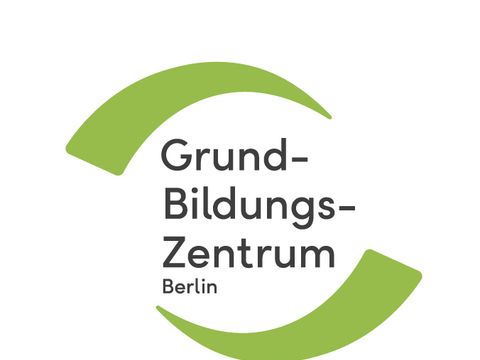One in eight adults in Germany cannot read and write sufficiently. The 2018 LEO study by the University of Hamburg states that 6.2 million German-speaking adults aged 18-64 live with low literacy, i.e. their level of written language skills is below text level. Work instructions, safety instructions, instruction leaflets, timetables are major hurdles for these people.
Literacy and Basic Education

Image: photowahn / Fotolia.com
Those who cannot read and write or can only read and write with great difficulty are excluded from many opportunities to understand the world and to participate in shaping society.
Contents
- Berlin Strategy for Literacy and Basic Education
- Contact Point Basic Education Berlin
- Round Table "Literacy and Basic Education"
- The Berlin Basic Education Centre
- ESF funding programme 2021 - 2027 – "Basic Education for Low-Literacy Adults
- Further training for Berlin course leaders in literacy and basic education for German-speaking adults
- Berlin Alpha Alliances
- Berlin Alpha alliances in the districts
- National Decade for Literacy and Basic Education (Alpha Decade) 2016 - 2026
- Further information on the National Decade for Literacy and Basic Education 2016-2026
-
Berlin state concept for literacy and basic education
DE (Easy Language)
PDF-Document (2.9 MB)
-
Berlin state concept for literacy and basic education
DE
PDF-Document (611.0 kB)
-
Promoting basic education - strengthening participation
Senate Strategy on Literacy and Basic Education 2015 to 2018
germanPDF-Document (2.3 MB)
-
Inventory and recommendations for the Senate Literacy and Basic Education Strategy 2015-2018.
german
PDF-Document (713.9 kB)
Berlin Alpha alliances in the districts

Image: SenBJF
National Decade for Literacy and Basic Education (Alpha Decade) 2016 - 2026
In the coming years until 2026, the Federal government, the Federal states and additional Partners will be making extensive efforts as part of the National Decade for Literacy and Basic Education to counteract low literacy among adults and to increase the level of basic education, for example, by researching the causes of low literacy, by professionalizing teachers in literacy and Basic Education by providing needs-based advice, learning and support offerings.
The Decade partners have summarised their objectives and recommendations for action for the National Literacy and Basic Education Decade in a policy paper with a work programme. The federal states have further specified their plans in a 10-point programme.
In addition, a conference is held every year for nationwide exchange and discussion on specialist topics. The documentation of the AlphaDecade Conferences is available on the AlphaDecade website.
The AlphaDecade emerged from the “National Strategy for Literacy and Basic Education” (2012 – 2016), in which the federal government, the states and partners agreed on a joint approach to reduce low literacy among adults. A final report on the National Strategy lists, among other things, the state of development and the results in the individual Länder up to 2016.
Senatsverwaltung für Bildung, Jugend und Familie
Bernhard-Weiß-Straße 6
10178 Berlin
![]()
![]()
![]()
![]()

